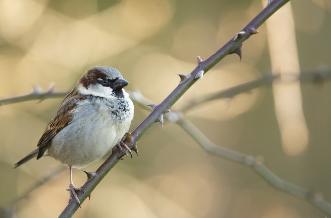
3 minute read
RSPBPagham &Medmerry
The Big Garden Birdwatch
By Rob Yarham, RSPB Pagham & Medmerry
Advertisement
Now the tree and tinsel have come down and we’ve all had just about as many mince pies as the human frame can stand, everyone’s attention turns towards the New Year and making resolutions – getting healthier and doing good coming top of many people’s lists. And Credit: Ben Andrew perhaps spending more time with nature and helping wildlife might be among your resolutions, too. On a cold, damp morning in January, there’s no better way to do all of those than to curl up with a hot drink indoors and watch the birds in our gardens. It sounds appealing, doesn’t it? But how can it possibly be healthy for you and also help nature? You may have seen just some of the news headlines this year saying that many wild species –including lots of the UK’s birds – need our help. In 2020, the RSPB’s State of the UK’s Birds report highlighted the decline of many birds, including those now featuring on the UK’s ‘Red List’ of rare and threatened birds. Overall, it has been estimated that there were 19 million fewer pairs of native breeding birds in 2017 compared to 1966. And this includes some of the birds we think of as the most common. For instance, research tells us that we have lost around 10.7 million pairs of house sparrows during that period – that’s the largest decline of any UK species. Starlings, too, which we also think of as a very common bird, have suffered huge losses – we have about 9.7 million fewer pairs than we did in the late 1960s. But how do we know how various bird species are doing? This is where the Great British public come in – we have lots of keen citizen scientists who spend much of their free time watching and counting birds, and not just on RSPB reserves. And you can help, too. Every year for the past 43 years, people have spent just an hour on the last weekend in January counting the birds that appear in their garden. The RSPB’s Big Garden Birdwatch has now become the world’s largest wildlife survey and gives RSPB scientists an important, annual snapshot of how our garden birds are doing. In 2022, nearly 700,000 people across the UK joined in, counting a grand total of over 11 million birds! Last year, in spite of its recent declines, the house sparrow was at the top of the rankings as the most commonly seen garden bird with more than 1.7 million recorded sightings throughout the weekend. Blue tits and starlings were second and third, respectively. Which shows how important our gardens have become for these birds. To join in, simply go to the RSPB website address at the bottom of this article, register for the Big Garden Birdwatch and follow the instructions. For just one hour on the weekend of 2729 January 2023, watch and count the birds in your garden, or in your local park. Then go to the RSPB website to tell us what you’ve seen, even if you haven’t seen anything at all! All your records will be analysed to help us understand how our birds are doing. But how does all of this give your health a boost? Well, you can also give your garden birds a helping hand by getting outdoors and making your garden a more wildlife-friendly space – by planting and maintaining shrubs they can roost and nest in, providing plants and flowers to encourage the insects they eat – and maybe even dig a pond, if you have the space. All that activity is sure to do you some physical good! And don’t forget to make sure the birds also have plenty of fresh food and water through the winter – especially when it’s cold. You can find out how to make your garden wildlife-friendly and how to feed your birds on the RSPB website, too. Finally, after all that, just spending time watching birds has been proven to help our mental health – researchers have found that people’s mental wellbeing improves when they see or hear birds, so taking part in the RSPB Big Garden Birdwatch might be just the thing to help you get started on some of those New Year resolutions! Register to take part in the RSPB Big Garden Birdwatch and learn all about gardening for and feeding birds on our website. And we can help you to identify garden birds on one of our guided walks this month: www.events.rspb.org.uk/ paghamharbour or call 01243 641508. www.rspb.org.uk/paghamharbour










